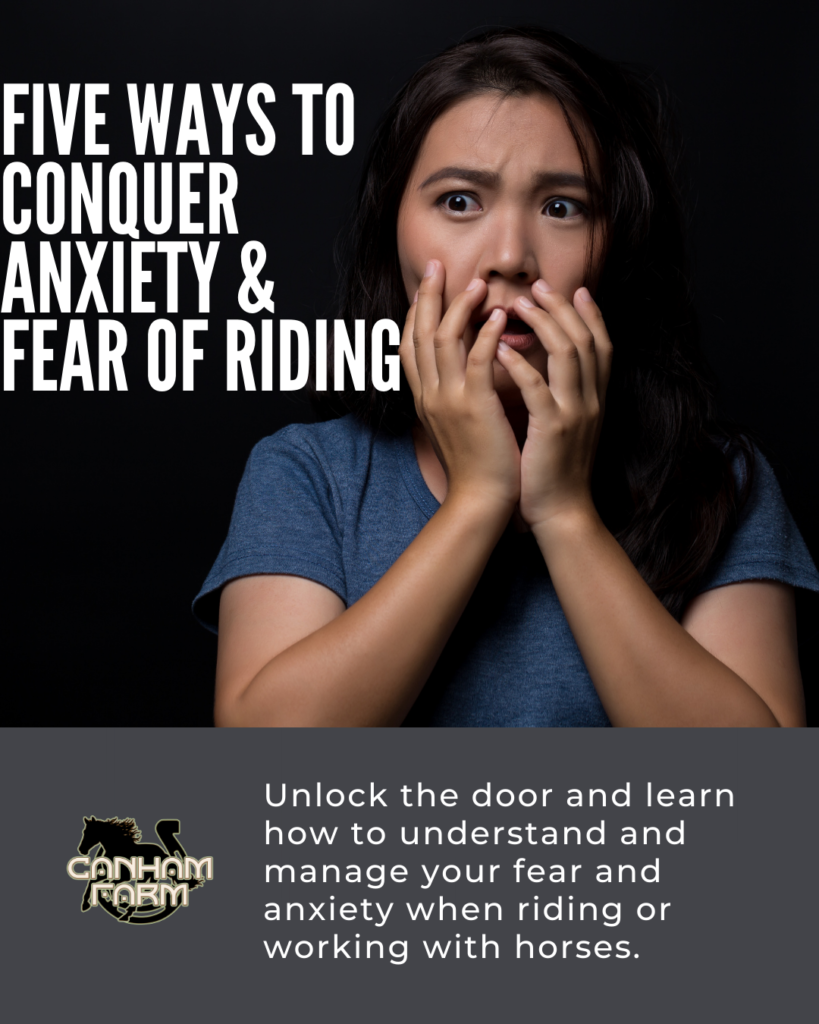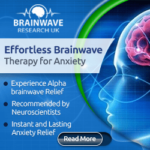If you ride horses the chances are you’ve experienced a bolt out of the blue. 
Or put another way, your horse sees or hears something that scares him, his flight trigger kicks in and he’s off running as fast as he can.
If you’re lucky (or have a butt made of velcro) you’ll stay in the saddle and ride it out. If you’re unlucky you’ll dismount in an undignified manner and hope that nobody saw you. If you’re really unlucky you’ll break a bone, get a concussion or worse and wonder why you ever wanted to ride horses at all.
Now, while most non-horse people would quit and say never again, you’re a horse addict and like any addict you need your fix. So, once you’ve physically recovered off you go to get back in the saddle.
But, something strange happens when you prepare to ride.
Paralyzing fear and anxiety rears its ugly head, your freeze or flight mode kicks in, your heart races, your palms sweat, your mouth is dry and you know, in that moment, you are too scared to get back on your horse.
Well, You Are Not Alone!
All horse riders experience fear and anxiety and if they say they don’t they are not telling the truth. Fear and anxiety are both a natural responses. But they are not the same. According to N.A.M.I fear is triggered by our five senses: seeing, hearing, smelling, touching and tasting. And anxiety is an emotional reaction to that fear.
So here are five ways to help you rein in your fear and anxiety to your advantage?

Meditation: Yes, I realize meditation may seem a bit daunting for some of you but studies show that guided meditation and mindfulness can help you embrace fear and anxiety, understand its power, both good and bad, and learn how to harness it to your advantage. Programs like The InnaPeace Program for Anxiety, can really help using using a technique known as Brainwave Guidance™ .
Knowledge: As the saying goes, knowledge is power and with power comes understanding. Learn how horses think. Get into their minds because the more you understand them, the more you’ll know. And the more you know the less anxious you will be.
Ask for Help: There is no shame in asking for help but make sure you choose the right help. Many “horse people/trainers” adhere to a philosophy of, ‘Oh you’ll be fine, ‘ or ‘it’s all in your head’ or worse ‘just get on and stop whining”. Now this may work for some but a more encouraging approach with no verbal coercion will help so much more. After all, overcoming fear takes time and you may need to just hang out with your horse for a few months instead of riding to regain trust and ultimately confidence.
Be comfortable in your own Ability: We all have a tendency to compare ourselves to others. “I’ll never ride as well as them” or on the other side of the coin, I’m a much better rider than them. Be comfortable where you are in your journey and never think you are either worse or better than someone else. You’re not. Look back at how much you have progressed. Be happy with where you are on your horse journey, learn slowly and when or if that bolt/spook happens again you will be able to feel it coming and prevent it before it happens.
Develop a Mantra. Mantra’s can be particularly helpful as they can shift your mindset from negative to positive which in turn can help reduce your fear and anxiety. For example, instead of saying,“I can’t handle this” change it to “how can I handle this?” Or “I’m not good enough at riding” to “my experience will make me a better rider.”
Of course, these suggestions won’t work for everyone but give at least one of them a try. Because if you learn to manage your own fear and anxiety, your horse will too.